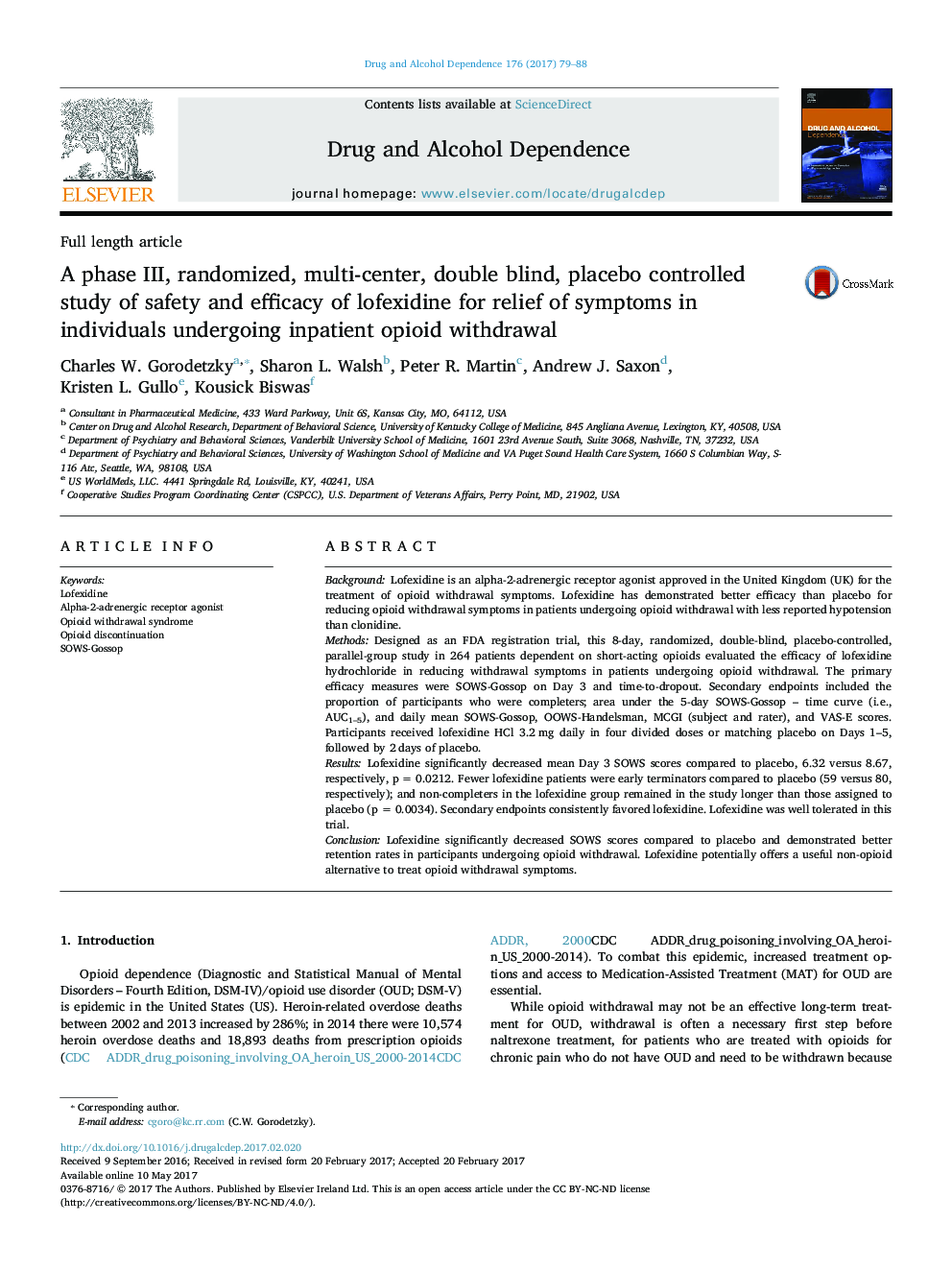| Article ID | Journal | Published Year | Pages | File Type |
|---|---|---|---|---|
| 5119998 | Drug and Alcohol Dependence | 2017 | 10 Pages |
â¢Lofexidine reduced symptoms in acutely withdrawing opioid dependent subjects.â¢Lofexidine enhanced retention in treatment of withdrawing opioid dependent subjects.â¢Lofexidine was well tolerated at 3.2 mg/day for 5 days in withdrawing subjects.â¢Lofexidine may offer a non-opioid alternative to treat opioid withdrawal symptoms.â¢Side effects of lofexidine included hypotension, dizziness, dry mouth and bradycardia.
BackgroundLofexidine is an alpha-2-adrenergic receptor agonist approved in the United Kingdom (UK) for the treatment of opioid withdrawal symptoms. Lofexidine has demonstrated better efficacy than placebo for reducing opioid withdrawal symptoms in patients undergoing opioid withdrawal with less reported hypotension than clonidine.MethodsDesigned as an FDA registration trial, this 8-day, randomized, double-blind, placebo-controlled, parallel-group study in 264 patients dependent on short-acting opioids evaluated the efficacy of lofexidine hydrochloride in reducing withdrawal symptoms in patients undergoing opioid withdrawal. The primary efficacy measures were SOWS-Gossop on Day 3 and time-to-dropout. Secondary endpoints included the proportion of participants who were completers; area under the 5-day SOWS-Gossop - time curve (i.e., AUC1-5), and daily mean SOWS-Gossop, OOWSâHandelsman, MCGI (subject and rater), and VAS-E scores. Participants received lofexidine HCl 3.2 mg daily in four divided doses or matching placebo on Days 1-5, followed by 2 days of placebo.ResultsLofexidine significantly decreased mean Day 3 SOWS scores compared to placebo, 6.32 versus 8.67, respectively, p = 0.0212. Fewer lofexidine patients were early terminators compared to placebo (59 versus 80, respectively); and non-completers in the lofexidine group remained in the study longer than those assigned to placebo (p = 0.0034). Secondary endpoints consistently favored lofexidine. Lofexidine was well tolerated in this trial.ConclusionLofexidine significantly decreased SOWS scores compared to placebo and demonstrated better retention rates in participants undergoing opioid withdrawal. Lofexidine potentially offers a useful non-opioid alternative to treat opioid withdrawal symptoms.
